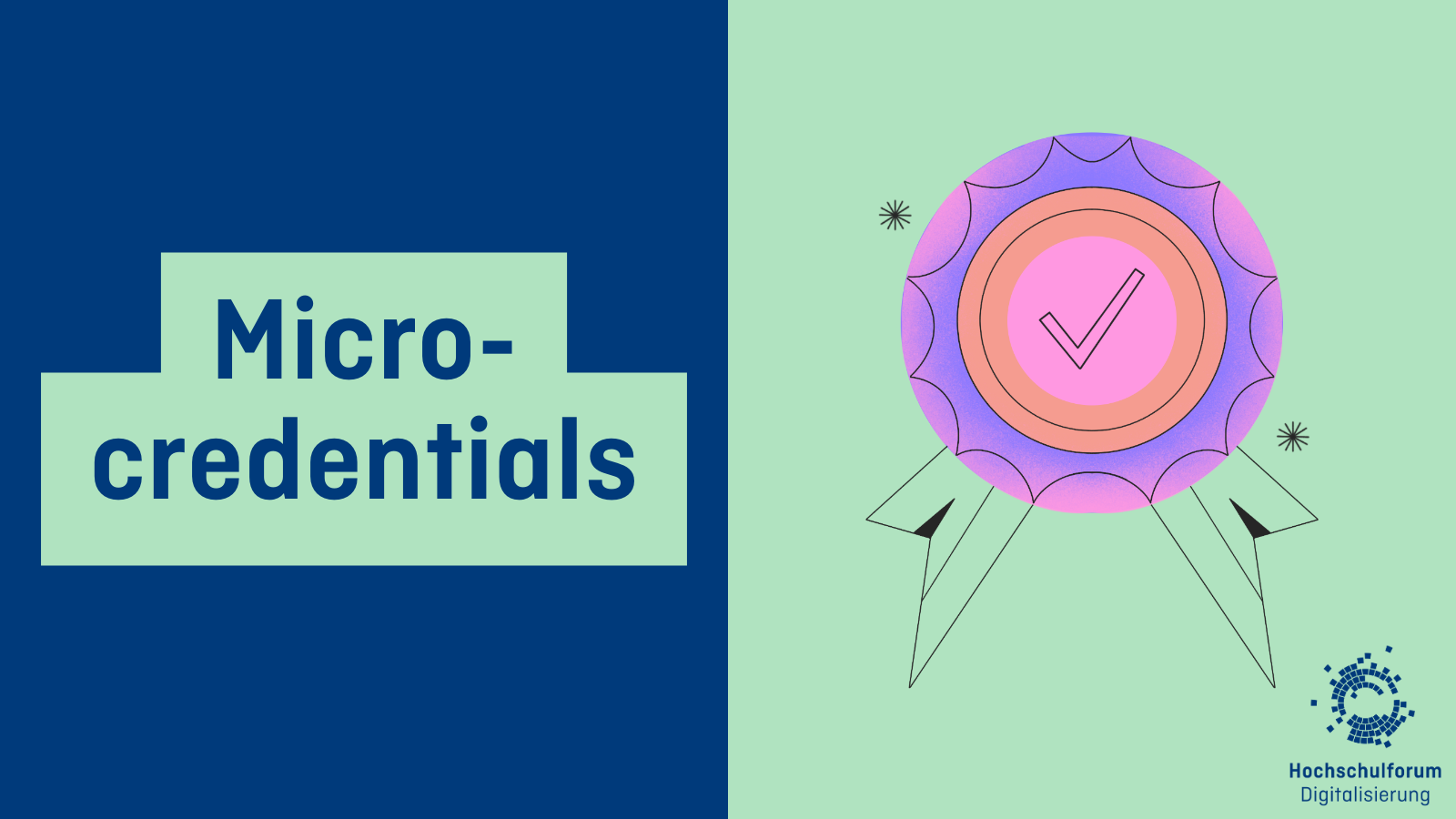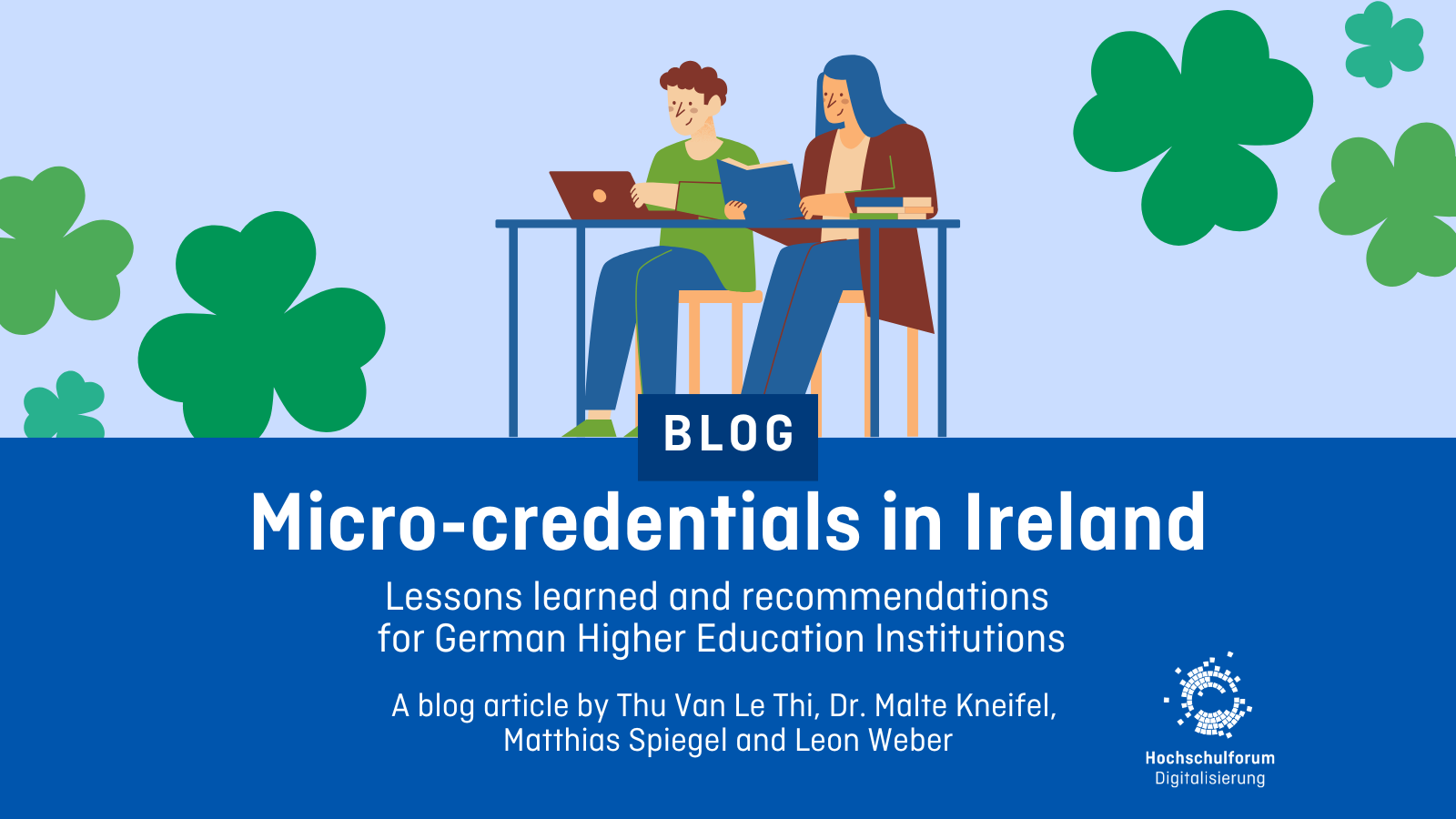Microcredentials

Microcredentials help to align educational opportunities more closely with individual learning needs and professional requirements. Microcredentials are a strategic response to the shortage of skilled workers, rapid technological development and the desire for more permeable educational pathways.
In January 2025, four representatives from Nuremberg Institute of Technology, the University of Rostock and the University of Cologne traveled to Ireland to gain insights into the development and implementation of microcredentials (MCs). The aim of the trip was to identify good practices from the national micro-credentialing project “MicroCreds” and to examine how these can be transferred to German universities and European university alliances.
The exchange with Irish partner institutions showed that a successful introduction requires not only technical solutions, but also political backing, flexible structures and targeted communication.
Ireland as a pioneering country
The Irish Universities Association (IUA) has developed a national framework for microcredentials together with its member universities. It defines binding standards for scope, quality assurance, credit transferability and stackability, based on the EU recommendation of 2022. The framework is supplemented by the microcreds.ie platform, which clearly presents further education courses – including information on scope, target groups, ECTS, level and conditions of participation.
The aim is to establish Microcredentials as a trustworthy, academically sound alternative to commercial training programs.
The delegation addressed six key issues:
- Policy: What political conditions promote microcredentials?
- Technology: How are digital credentials created, managed and shared?
- University practice: How big are microcredentials (ECTS) and how does quality assurance work?
- International aspects: How do microcredentials become divisible and combinable (stackable)?
- Student status: How are microcredential learners legally classified?
- Recognition: How can microcredentials be integrated into curricula?
You can find out more about the specific issues in the task cards:
Insights and impulses from the delegation trip
- Policy: A national, coordinated framework creates uniformity, trust and international connectivity.
- Technology: Digital platforms and standards ensure visibility, interoperability and efficiency.
- University practice: Recognition, accreditation and quality assurance must be microcredential-specific but compatible with existing university structures.
- International aspects: Stackability is achieved through clear structures and international connectivity.
- Student status: Legal certainty and clear assignment of learners promote integration into alliances and systems.
- Recognition: Scaling requires automated processes, target group-oriented offers and transparent communication.
You can find further insights into key findings, experiences and recommendations in both the blog post and the Hangout.

Micro-credentials in Ireland: Lessons learned and recommendations for German Higher Education Institutions
Delegation

Thu Van Le Thi (Technische Hochschule Nürnberg)
Lehr- und Kompetenzentwicklung, Projektleitung „Micro-Credentials für Data Analytics (MC4Data).

Dr. Malte Kneifel (Universität zu Köln)
Prorektorat für Lehre und Studium, Experte für hochschulstrategische Themen.

Matthias Spiegel (Technische Hochschule Nürnberg)
(Technische Hochschule Nürnberg): Informatik-Fakultät, technischer Experte für die Umsetzung von MC4Data.

Leon Weber (Universität Rostock)
Stabsstelle für Hochschul- und Qualitätsentwicklung sowie Vertreter der EU-Hochschulallianz EU-CONEXUS.

